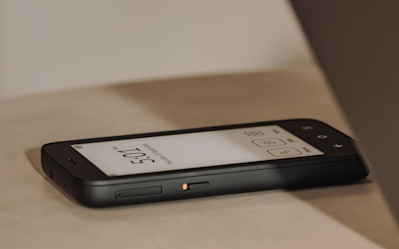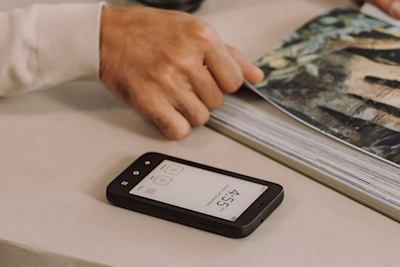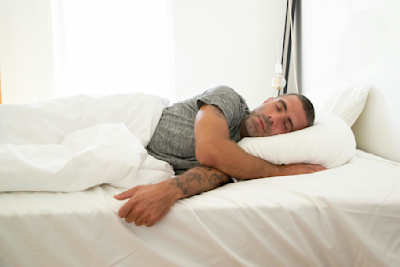
Is Your Phone Affecting Your Mental Health?
How Smartphones Impact Our Mental Well-being
In an era where the buzz of smartphones is as constant as the passing of time, understanding the impact of these devices on our mental health is more crucial than ever.
However, in the last few years there’s been more and more concern that excessive or improper use of smartphones can have a negative impact on mental health.
Numerous studies and reports have highlighted concerns about the potential mental health effects associated with prolonged smartphone use, particularly when it involves engagement with social media. Even the surgeon general issued an advisory, in May 2023, about the concerning effects of social media on the mental health of young people. [1]
These effects can include increased anxiety, depression, and feelings of loneliness, especially among younger users.
As you know, at Mudita, we're not about totally shunning technology, but rather more about embracing it mindfully.
That’s why we would like to dive deep into the labyrinth of smartphone use and mental well-being, untangling the complex web we've woven around our digital companions.
So, let’s get into it.
The Allure of the Digital World
Smartphones, the pocket-sized gateways to an infinite digital universe, offer a seductive mix of convenience and connection.
Yet, this allure comes with a caveat – the potential to disrupt our mental equilibrium. The statistics are telling: a staggering percentage of the global population is tethered to these devices, blurring the lines between use and overuse. In fact, in 2023 half of Americans (56.9%) surveyed admitted that they are addicted to their cell phone, a greater percentage than last year. [2]
The Addiction Spectrum
The term 'addiction' might seem hyperbolic when referring to smartphones, however, it's a reality grounded in psychological research. The dopamine-driven feedback loops created by social media likes, messages, and notifications are akin to the mechanisms found in gambling and substance abuse.
The result? A compulsive need to check our phones, leading to disrupted daily routines and a significant dip in productivity.
Let’s be honest with ourselves. How much time do we really spend staring at our smartphones, endlessly scrolling, consuming content that really does not benefit our life in any way shape or form?
Well, according to a survey by Reviews.org, in 2023, the average person spent 4 hours, 25 minutes each day on their cell phones. That's an equivalent of 65 days (OVER TWO MONTHS) of the year staring at a smartphone screen. [2]
WOW! Let that sink in.
Social Media: A Double-Edged Sword
While social media keeps us connected, it also opens the door to the "compare and despair" syndrome. The curated, often idealized lives displayed on these platforms can stir feelings of inadequacy and anxiety. [3]
This digital distortion of reality can lead to a decline in self-esteem and an increase in depressive symptoms, especially among teenagers and young adults.
The Sleep Conundrum
This is a topic we’ve discussed so many times, but it’s so important, we believe it needs to be highlighted even more. Blue light emitted by smartphone screens disrupts melatonin production, essential for a healthy sleep cycle.
Poor sleep quality leads to a cascade of mental health issues, including heightened anxiety, diminished cognitive function, and mood swings. The temptation to scroll through our feeds late into the night further exacerbates this problem.
READ: How sleep affects mental health
Additionally, sleeping with the phone next to us, or sleeping with a phone under our pillows, can make it nearly impossible for our brain to completely disconnect, allowing us to get a proper restorative night’s rest.
The Paradox of Connection and Isolation
While smartphones keep us connected to distant friends and keep us informed of global events, they can simultaneously isolate us from our immediate physical environment.
This digital isolation can lead to feelings of loneliness and detachment, paradoxically in an age where we are more 'connected' than ever. Consequently this shift towards digital interaction can impact our sense of community and belonging. Traditional community structures, where relationships were built through regular, in-person interactions, are increasingly being replaced by online communities that may lack the same sense of closeness and support.
READ: The Power of Human Connection
Relationship Rifts
Smartphones, ironically, can create distances in our closest relationships. The phenomenon of "phubbing" – snubbing someone in favor of your phone – can erode the quality of our personal interactions, leading to feelings of neglect and decreased relationship satisfaction.
Not to mention the rise of "low maintenance friendships" where friendships are supposedly maintained with minimal real-world contact, sometimes only 1–3 times a year (if any, tbh).
The phenomenon of low maintenance friendships is often juxtaposed with our constant connectivity through social media.
Social media allows for continuous, low-effort engagement that we mistakenly think can be a substitute for more meaningful interactions. However, the nature of these connections is often superficial. Regular updates, likes, and comments on social media can create an illusion of being in touch without fostering real emotional depth or understanding in relationships. This results in ‘low maintenance friendships’, where minimal interaction is mistaken for a meaningful connection.
Here’s the catch: This type of behavior does not fulfill the human need of longing for community and connections while adhering to a friendship model that doesn't foster close bonds.
As a result, all this excessive screen time creates an illusion of connection without real human interaction, leading to a trend that contributes to loneliness and lacks the substance that makes life fulfilling.
READ: What's behind the loneliness epidemic & how can we fix it
The Anxiety-Phone Feedback Loop
The constant need to be reachable and connected can foster a form of anxiety unique to our digital age. The absence of our digital appendage or the lack of immediate responses to our messages can trigger stress responses similar to withdrawal symptoms. Combined with the feeling of needing to be 'constantly available,' especially due to the pervasive use of smartphones and social media, this can significantly impact mental health and contribute to heightened levels of anxiety.
Strategies for Mindful Smartphone Use
At Mudita, we believe in harnessing the power of technology mindfully.
Here are some strategies to maintain a balanced relationship with your smartphone:
Digital Detox: Regular intervals of phone-free time can help reset your mental space. This could be during meals, before bed, or designated hours during the weekend.
Conscious Consumption: Be selective about the apps and notifications that warrant your attention. Customizing these can significantly reduce unnecessary digital noise.
Mindful Interactions: Prioritize face-to-face interactions over digital ones. When with loved ones, make a conscious effort to keep the phone away. If you’re having some trouble with this tip, try Stolp, a Faraday cage, where an electromagnetic layer ensures that once the phones are placed inside, no signal can enter. Out of sight, out of mind, right?
Digital Literacy: Educate yourself and others, especially young users, about the psychological impacts of excessive smartphone use. Knowledge is a powerful tool in developing healthier habits.
Stolp - Disconnect to reconnect
Another effective tool designed to support these strategies is Mudita's new Mudita Kompakt phone. Emphasizing mindful use of technology, Mudita Kompakt aims to reduce screen time and improve overall well-being. It's designed for people who want to reclaim their time and focus, offering essential features without the overwhelming complexities of modern smartphones.
By choosing Mudita Kompakt, you are opting for a more balanced, focused, and present lifestyle, free from the constant barrage of notifications and apps.
The Balanced Tech Approach
While smartphones are an inseparable part of modern life, their impact on mental health cannot be overlooked.
At Mudita, we advocate for a balanced approach to technology – one that enhances life without becoming its focal point.
By embracing digital minimalism and mindful tech use, we can navigate the digital wave without losing sight of our mental oasis.
Related stories

Why Phones Without Internet Are Trending
Do you know why phones without internet are trending? Learn how Mudita Kompakt's E Ink display and offline mode balance functionality with digital wellness.

It’s official! Kompakt is now shipping to North American Backers
The North America Optimized Mudita Kompakt, our minimalist phone designed for mindful living, is now shipping. See what to expect and how to track your order.

How a Consistent Sleep Schedule Contributes to Longevity?
A consistent sleep schedule boosts longevity, supports heart health, and enhances brain function. Learn how better sleep can lead to a longer, healthier life.
If you'd like to receive the best stories from our blog, keep up to date with our progress and get notified about our product releases and special discounts.